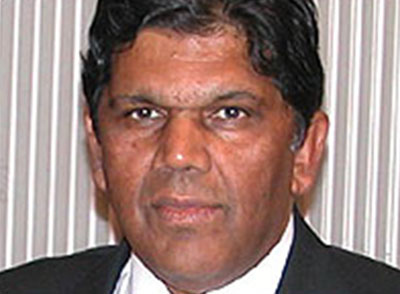As South Africa was bleeding under apartheid, Alan Paton wrote his historic novel, Cry, the Beloved Country. Shortly after Nelson Mandela was released from prison, he and Frederik de Clerc asked the UN to send observers to the country to help preserve peace. I led a UN delegation to the Natal-Kwazulu region of South Africa. For ten days, I flew daily in a helicopter over this beautiful land and could see why Paton had given the book its title.
And now I feel for the cries coming from my beloved country, my beloved Guyana, at this delicate time. And I ask myself, what is the way forward for my beautiful country. On New Year’s day this year, I published in this newspaper, A Pledge for Guyana that sought to offer an inclusive vision for our Dear Land.
I read, I listen, I sense, and it is there, for all who wish, to behold: the cries of the people of our dear land of Guyana. The cries of the Amerindians, whose country it was to begin with, tears of decimation, suffering, tears for their culture, tears for development, tears for rights, tears for justice.
The tears of our Afro-Guyanese. They were brought to our dear land in chains, enslaved, brutalized, dehumanized. Crowns of Glory, Tears of Blood, is how Brazilian historian Emilia Viotto labelled it in her book on the plight of Guyana’s slaves and their fight for freedom. Our Afro-Guyanese brothers and sisters opened up our dear land with their toil and their sweat, and aspire to participate fully in the provenance and governance of the country.
In 2011 I was one of an international group brought in by civil society to interact with all of Guyana’s political parties, religious and cultural groupings, civil society and youth organizations for an exchange on the experiences of successful governance in multi-ethnic countries. One thing that came through poignantly was that Afro-Guyanese were hurting because they felt that they were being outvoted at elections and excluded from governance.
The tears of our Chinese, Portuguese and other European Guyanese. Smaller in numbers than hitherto, they love their country and wish to be treated as loyal and patriotic Guyanese. They wish to be treated with respect, and to have equal opportunities to participate in the development of the country and to enjoy its bounties.
The tears of our Indo-Guyanese, who labour on the land, strive for the betterment of their families, and live in fear much of the time: fear of crime, fear of violence, fear at election time.
The tears of Guyanese of mixed parentage, who see themselves as emblems of the future. The tears of children and youth, who wish to be free of all this strife and bickering, all of this fear of violence at election time. In 2011, the young people we met repeatedly said: ‘We want to live together. We do not have the prejudices of the older generation’. I could see this sentiment when I was Chancellor of the University of Guyana.
As I think of these tears of our people, I ask myself, what is the way forward? I have served the United Nations in situations of war and of peace. I was for four years with the peacemakers during the wars in Yugoslavia. I conducted a UN Mission to Ivory Coast in the midst of their civil war. I have served in the position of UN High Commissioner for Human Rights. I believe that inside their hearts all of our people are good people. We need to find a way forward.
I will not enter into the difficulties of counting and re-counting of ballots from the recent general elections. I believe that they are the manifestations of tears from within our citizenry. Side-stepping the electoral emergency, I ask myself the following: What if the political parties that contested the last general elections were to sign an agreement asking the learned Chief Justice to Co-Chair a National Commission for Guyana consisting of two Co-Chairs, and a representative of each of the six ethnicities of Guyana chosen by the Co-Chairs?
What if the Co-Chairs were to ask all the political parties to make written submissions within three weeks for a system for the future governance of Guyana. What if the Co-Chairs and the National Commission were to come up, within two months, with recommendations for a Governance system for Guyana for five years? What if all the political parties were to agree beforehand to accept the recommendations of the National Commission?
What if the recommendations of the National Commission were to gain the confidence of the country? What if the recommendations of the National Commission were to form the basis for a future of inclusive governance in Guyana? Might Guyana prosper, and go forward with justice and respect for human rights for all Guyanese? Might such an outcome reduce the tears of Guyanese? Might the Beloved Guyana cry no more? There might be a chance for us. Might we try it? Martin Luther King did say, “I have a dream!






